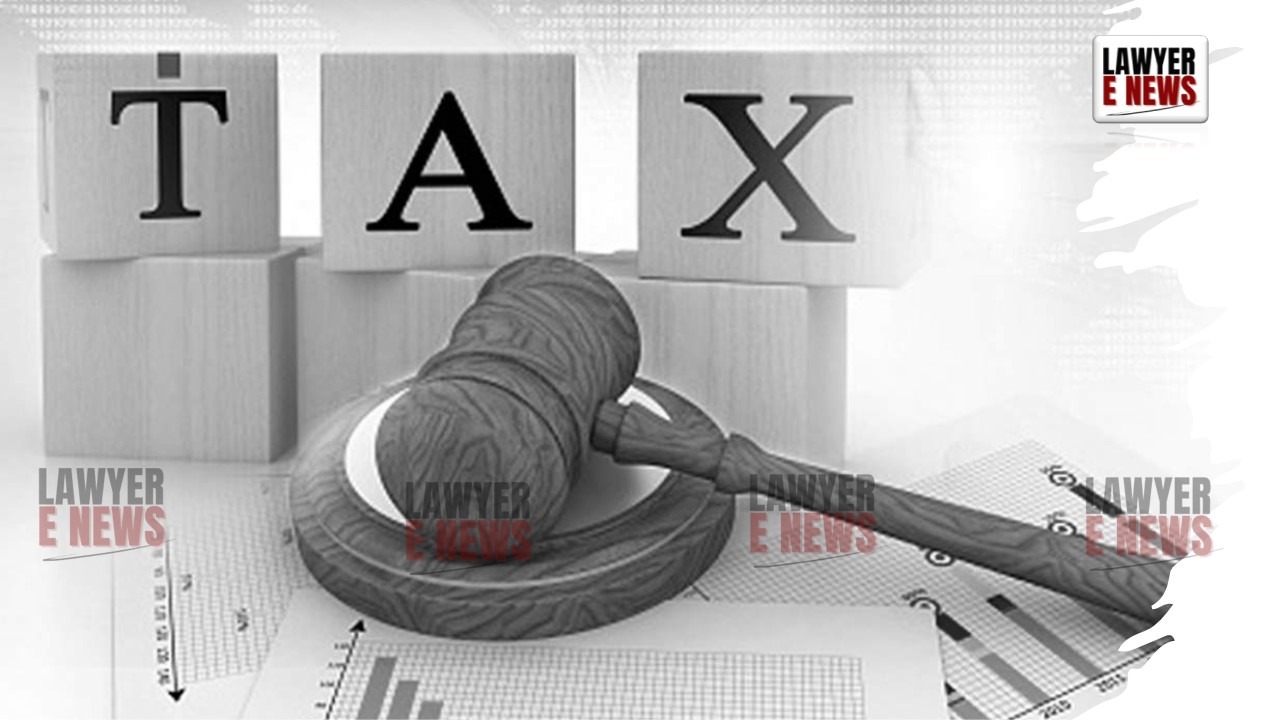-
by Admin
15 February 2026 5:35 AM



Belated Expansion of Disputes Is Inconsistent with DTVSV Scheme - Bombay High Court, delivered a significant judgment filed by Umesh Navnitlal Shah HUF. The petitioner challenged the errors in computing disputed tax under the Direct Tax Vivad Se Vishwas Act, 2020 (DTVSV Act) and sought the inclusion of additional grounds related to Long-Term Capital Gains (LTCG) under Section 68 of the Income Tax Act.
The Court ruled partially in favor of the petitioner by directing the Income Tax Department to compute the disputed tax at 100% instead of 125%, as the petitioner’s case was erroneously classified as a "search case." However, the Court rejected the petitioner’s plea to include belated additional grounds under the DTVSV Scheme, holding that such inclusion violated the scheme's objectives.
The Court addressed the petitioner’s grievance that their case was mistakenly treated as a “search case”, leading to the computation of disputed tax at 125% instead of 100%, as per Section 3 of the DTVSV Act. The respondents conceded their error in the affidavit filed by the Principal Commissioner of Income Tax, acknowledging that the case was, in fact, a “non-search case”, warranting computation at 100%. Referring to the affidavit, the Court stated, “The petitioner’s case being a non-search case must be computed at the rate of 100%, and revised Form-3 should be issued with all consequential benefits” [Paras 37-41]. Consequently, the Court directed the Competent Authority to issue a revised Form-3 within 30 days, reflecting the correct computation of disputed tax.
The petitioner sought to include additional grounds challenging an LTCG addition of ₹2,02,50,919 under Section 68 of the Income Tax Act after the specified date of January 31, 2020, under the DTVSV Act. The petitioner claimed transitional issues and software glitches prevented the timely filing of these grounds. However, the Court rejected this contention, observing that “there is absolutely nothing on record to substantiate this claim. Even assuming such issues existed, the petitioner has failed to provide any correspondence or evidence to support such a grievance” [Para 28].
The Court further noted that the petitioner “voluntarily offered the LTCG amount to tax in 2016 to avoid litigation”, as explicitly mentioned in their communication to the Assessing Officer. Additionally, the petitioner filed an appeal in 2017 only to challenge the disallowance of ₹9,11,037 under Section 69C but made no appeal against the LTCG addition. Referring to this, the Court stated, “The petitioner’s belated attempt to revive settled disputes undermines the objectives of the DTVSV Scheme” [Paras 28-36].
The Court noted that the petitioner had voluntarily conceded the addition of ₹2,02,50,919 towards LTCG under Section 68 in 2016, with the stated purpose of avoiding litigation. In their communication dated November 25, 2016, the petitioner explicitly stated, “Your assessee voluntarily offers the LTCG of ₹2,02,50,919/- to income tax in light of recent tax controversies surrounding the claiming of exemption of LTCG on disinvestment of equity shares.” The petitioner also pleaded that no penalty proceedings should be initiated under Section 271(1)(c) of the Income Tax Act. However, the Assessment Order dated December 26, 2016, clearly mentioned the initiation of penalty proceedings.
Despite being aware of these developments, the petitioner filed an appeal on January 27, 2017, challenging only the disallowance of ₹9,11,037 under Section 69C but not the LTCG addition. The Court observed, “By failing to appeal the addition of ₹2,02,50,919/- when the opportunity existed, the petitioner demonstrated that the addition was made with their explicit concession and acknowledgment” [Paras 15-20].
The Court rejected the petitioner’s attempt to include additional grounds challenging the LTCG addition after January 31, 2020, stating that this was a clear violation of the DTVSV Act and CBDT Circular No. 21/2020. The Court emphasized that “the DTVSV Act aims to settle pending disputes as of the specified date, not to revive settled matters or expand the scope of disputes post facto” [Paras 26, 34].
While the petitioner argued that software glitches delayed their attempt to amend the appeal memo, the Court found no evidence of any such issues. Referring to the petitioner’s belated efforts, the Court stated, “This Act is meant to resolve pending disputes, not revive settled ones. Permitting belated grounds would defeat the scheme’s purpose” [Paras 32-36].
The Court reinforced the binding nature of CBDT Circular No. 21/2020, which specifies that only additional grounds raised on or before January 31, 2020, can be considered for computing disputed tax. The petitioner’s attempt to amend the appeal memo on December 4, 2020, after filing their declaration under the DTVSV Scheme, was dismissed as inconsistent with the circular's mandate.
On the issue of erroneous tax computation at 125%, the Court relied on the precedent set in Bhupendra Mehta v. Principal Commissioner of Income Tax (2021) to hold that the petitioner’s tax liability should be computed at 100%. The Court referred to the affidavit filed by the Principal Commissioner, which stated, “Based on the decision in Bhupendra Mehta, the petitioner’s case has been treated as a non-search case for determination of the amount payable under DTVSV, and a revised Form-3 is being issued” [Paras 37-40].
Revised Computation of Tax at 100%: The Income Tax Department was directed to issue a revised Form-3 reflecting the correct computation of disputed tax at 100% within 30 days, with all consequential benefits.
Rejection of Additional Grounds: The petitioner’s claim for including the belated LTCG addition of ₹2,02,50,919 under disputed tax was dismissed, as the attempt was inconsistent with the DTVSV Scheme.
No Costs Awarded: The Court declined to impose costs on the parties.
The judgment underscores the limited scope of the Direct Tax Vivad Se Vishwas Scheme, reaffirming that it is intended to resolve existing disputes, not revive settled matters. While granting relief on the erroneous computation of tax, the Court upheld the principle that belated expansion of disputes undermines the scheme’s objectives.
Date of Decision: January 8, 2025
